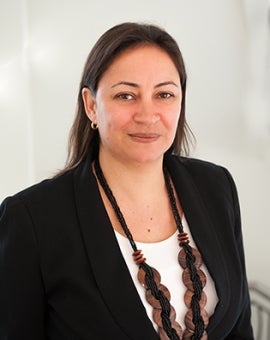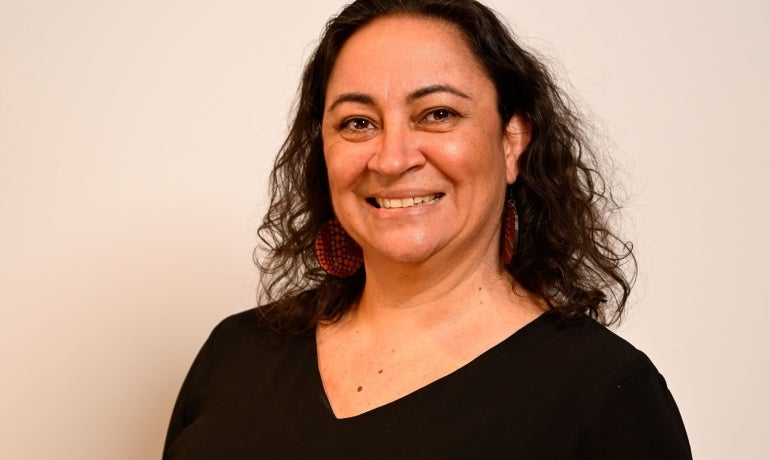Aboriginal and Torres Strait Islander Social Justice
All of us can play a part in making sure that every Australian – Indigenous and non-Indigenous – has the opportunities and choices they need to lead full and healthy lives.

Meet the Commissioner
Katie Kiss
Katie Kiss commenced as Aboriginal and Torres Strait Islander Social Justice Commissioner on 3 April 2024.
Commissioner Kiss is a proud Kaanju and Birri/Widi woman who grew up in Rockhampton, Central Queensland on the lands of the Darumbal People.
She was previously the Executive Director of the Interim Truth and Treaty Body supporting Queensland’s Path to Treaty, and held senior positions in the Queensland Government, including Chief of Staff to the Minister for Seniors, Disability Services and Aboriginal and Torres Strait Islander Partnerships, and Senior Advisor to the Deputy Premier.
Commissioner Kiss also worked for eight years at the Australian Human Rights Commission, where she was the Director of the Aboriginal and Torres Strait Islander Social Justice Team.

Latest News
Coronial findings on Kumanjayi Walker’s death a powerful call for justice reform
The Aboriginal and Torres Strait Islander Social Justice Commissioner, Katie Kiss, says the coronial findings into the death of Kumanjayi Walker in police custody are a painful, but powerful reminder of the urgent need for sweeping reform across police and justice systems to fully address ongoing injustices against First Peoples.
How my perspective as a non-Indigenous person was profoundly changed
In an an opinion piece for The Canberra Times, Commission President Hugh de Kretser reflects on how the truth-telling process can change the perspectives of non-Indigenous Australians like himself. It follows this week's publication of the final reports of the Yoorrook Justice Commission, the first formal truth-telling inquiry into injustices against First Peoples in Victoria.
Racial Justice Fundraising Dinner
Introduction: Country, Sovereignty, Truth Good evening, all. Ladies, gentlemen, distinguished guests. As a proud Kaanju, Birri/Widi Woman from North Queensland who grew up on the lands of the Darumbal People in Rockhampton, I acknowledge and pay my deepest respects to the Gadigal people of the Eora...

